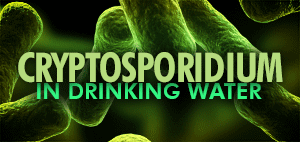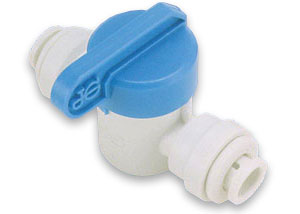What is Cryptosporidiosis?
Cryptosporidiosis is a disease caused by the parasite Cryptosporidium parvum, which as late as 1976 was not known to cause disease in humans. Until 1993, when over 400,000 people in Milwaukee, Wisconsin, became ill with diarrhea after drinking water contaminated with the parasite, few people had heard of either Cryptosporidiosis or the single-celled protozoan that causes it.
Since the Milwaukee outbreak, concern over the safety of drinking water in the United States has increased, and new attention has been focused on determining and reducing the risk for Cryptosporidiosis from community and municipal water supplies.
How is Cryptosporidiosis Spread?
Cryptosporidiosis is spread by putting something in the mouth that has been contaminated with the stool of an infected person or animal. In this way, people swallow the Cryptosporidium parasite, which is too small to be seen with the naked eye. A person can become infected by drinking contaminated water or eating raw or undercooked food contaminated with Cryptosporidium oocysts (an egg-like form of the parasite that is in the infectious stage); direct contact with the droppings of infected animals or stool of infected humans; or hand to mouth transfer of oocysts from surfaces that may have become contaminated with microscopic amounts of stool from and infected person or animal.
What are the Symptoms of Cryptosporidiosis?
Two to ten days after infection by the parasite, symptoms may appear. Although some persons may not have symptoms, others have watery diarrhea, headache, abdominal cramps, nausea, vomiting, and low-grade fever. These symptoms may lead to weight loss and dehydration.
In otherwise healthy persons, these symptoms usually last 1 to 2 weeks, at which time the immune system is able to stop the infection. In persons with suppressed immune systems, such as persons who have AIDS or recently have had an organ or bone marrow transplant, or undergoing treatment for cancer, the infection may continue and become life-threatening.
What To Do If You Suspect That You Have Cryptosporidiosis
See your physician as soon as possible, especially if your immune system is suppressed, to insure that the disease can be properly identified and monitored. You may be tested for the Cryptosporidium parasite by submitting a stool sample.
Treatment For Cryptosporidiosis
No safe and effective cure is available for Cryptosporidiosis.
People who have normal immune systems improve without taking antibiotic or antiparasitic medications.
The treatment recommended for this diarrheal illness is to drink plenty of fluids and get extra rest. Physicians my prescribe medication to slow the diarrhea during recovery.
Who Is At Risk?
Persons at increased risk for Cryptosporidiosis include child care workers; diaper-aged children who attend day-care centers; persons exposed to human feces by sexual contact; and caregivers who might come in direct contact with feces while caring for a person infected with Cryptosporidiosis at home or in a medical facility. Once infected, persons with suppressed immune systems such as cancer chemotherapy patients are at risk for severe disease.
How To Prevent Cryptosporidiosis
Avoid water or food that may be contaminated.
Wash hands after using the toilet and before handling food.
If you work in a child-care center where you change children’s diapers regularly, wash hands properly, or if you use gloves, change gloves between each child.
In community wide outbreaks caused by contaminated drinking water, boil drinking water for 1 minute to kill the parasite. Allow water to cool before drinking it.
HIV-infected persons should avoid drinking water directly from lakes or rivers; avoid unpasteurized milk or milk products; avoid exposure to calves or lambs and places where these animals are raised; wash hands after contact with pets; and wash hands after gardening or other contact with soil. Because of any sexual activity that brings a person in contact with the feces of an infected partner greatly increases the risk for Cryptosporidiosis, HIV-infected persons and AIDS patients should follow “safer sex” guidelines and avoid sexual practices that may result in contact with feces.
If you are a caregiver of Cryptosporidiosis patients, wash hands after bathing patients, emptying bedpans, changing soiled linen, or otherwise coming in contact with the stools of patients.
If you have Cryptosporidiosis, wash your hands often to prevent spreading the disease to other members of your household.
Cryptosporidium Removal From Drinking Water
Water suppliers use disinfectants, like chlorine, to destroy pathogens (disease-causing organisms) from drinking water. However some pathogens are highly resistant to standard disinfection methods (such as Cryptosporidium).
Ultraviolet Sterilizer Systems Ceramic Filters Reverse Osmosis Water Filters Under Sink Water Filters Countertop Water Filters Whole House Water Filters Everpure Systems and Cartridges
NSF 53 or
58 Certified
From NSF.org
NSF/ANSI Standard 53: Drinking Water Treatment Units
Overview: Standard 53 addresses point-of-use (POU) and point-of-entry (POE) systems designed to reduce specific health-related contaminants, such as Cryptosporidium, Giardia, lead, volatile organic chemicals (VOCs), MTBE (methyl tertiary-butyl ether), that may be present in public or private drinking water.
NSF/ANSI Standard 58: Reverse Osmosis Drinking Water Treatment Systems
Overview: This standard was developed for point-of-use (POU) reverse osmosis (RO) treatment systems. These systems typically consist of a pre-filter, RO membrane, and post-filter. Standard 58 includes contaminant reduction claims commonly treated using RO, including fluoride, hexavalent and trivalent chromium, total dissolved solids, nitrates, etc. that may be present in public or private drinking water.
Sources of Information on Cryptosporidiosis
The foregoing information was copied from a FACT SHEET dated September, 1994.















































